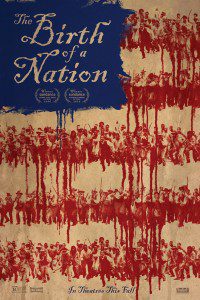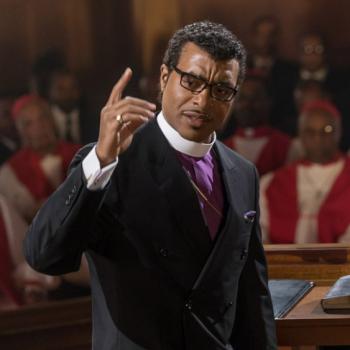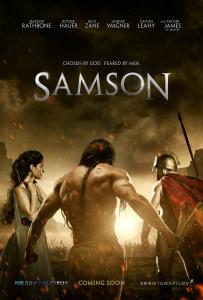 It is a common assumption in modern Western society that Christianity and the Bible endorse slavery. Certainly, the concept of slavery is found in the Bible and historically it has been true that one of the main institutions perpetuating slavery in America and other countries was the church. However, when you study the writings and speeches of Dr. Martin Luther King, the voice of the civil rights movement in America, you find that, rather than encouraging people to leave Christianity and the Bible behind, Dr. King actually called people to a deeper understanding and commitment to Biblical justice and he used the prophets of the Old Testament to shape His message of freedom.
It is a common assumption in modern Western society that Christianity and the Bible endorse slavery. Certainly, the concept of slavery is found in the Bible and historically it has been true that one of the main institutions perpetuating slavery in America and other countries was the church. However, when you study the writings and speeches of Dr. Martin Luther King, the voice of the civil rights movement in America, you find that, rather than encouraging people to leave Christianity and the Bible behind, Dr. King actually called people to a deeper understanding and commitment to Biblical justice and he used the prophets of the Old Testament to shape His message of freedom.
In the new film Birth of a Nation, based on the real life story of Nat Turner, we see both sides of the coin. In the film, starring, produced, and directed by Nate Parker, we see young Nat being taught to read by his master’s daughter. He grows up to be a preacher, which is good when he is able to minister to his people, but is damaging when he is made to preach obedience to other slaves by his master and a conniving white preacher. One of the film’s most chilling reminders about the power of religion as a tool for the wicked is spoken by a slaveholder, “Even the meanest (N word) are fearful of the gospel. A good word from (the preacher) is better than my pistol.” After Nat’s wife is raped by a slave tracker and Nat himself is savagely beaten for little reason, he realizes he must fight for justice. His decision is made sitting in front of a Bible.
Turner’s film does not shy away from controversial material and difficult questions. It is very well made and does not deconstruct history by minimizing Turner’s faith (although one possible deviation from history was making his motive about his wife’s assault rather than the real Turner’s own written statement that he had a vision about a holy war in which he was called by God to take up arms). The film stresses not so much what Scripture teaches concerning slavery, but rather how Scripture was used by both blacks and whites to both support and undermine the institution of slavery in the South. As Nat tells his fellows insurrectionists, “For every verse they use to support our bondage, there’s another demanding our freedom. For every verse they use to justify torture, there’s another damning them to hell for their actions.”
So, what gives? Is Christianity pro-slavery or anti-slavery (or just ambivalent)? Regarding what the Bible says, it is obvious that slavery in Israel in the Old Testament was different from modern slavery, much more like indentured servitude, as Exodus 21:16 makes clear, “He who kidnaps a man, whether he sells him or he is found in his possession, shall surely be put to death.” The defining event of the Old Testament was God delivering His people out of slavery in Egypt in the book of Exodus. Indeed, many negro spirituals used those images of the Exodus as lyrics of hope in the midst of similar horrific oppression.
In the New Testament, the slavery that is addressed is basically Roman slavery of Jews and other subjugated people. Of course, it’s jarring to hear Nat Turner be forced to read passages from the New Testament like 1 Peter 2:18-19, “Servants [‘Slaves’ in the King James], be subject to your masters with all respect, not only to the good and gentle but also to the unjust. For this is a gracious thing, when, mindful of God, one endures sorrows while suffering unjustly.” That sounds terrible, like it is justifying slavery, but you really need to read the rest of the passage in verses 20-21 to see what Peter is getting at, “For what credit is it if, when you sin and are beaten for it, you endure? But if when you do good and suffer for it you endure, this is a gracious thing in the sight of God. For to this you have been called, because Christ also suffered for you, leaving you an example, so that you might follow in his steps.” Clearly Peter is not approving of slavery, but rather showing how suffering slaves/servants are like Christ who died an unjust death on the cross to redeem (literally ‘buy out of slavery’) His people.
Ultimately, we see God’s desire for all people to be free in the book of Philemon, where Paul pleads with Philemon to give his slave Onesimus his freedom. And his great cry of freedom and equality is in Galatians 3, “There is neither Jew nor Greek, there is neither slave nor free man, there is neither male nor female; for you are all one in Christ Jesus.” There is no biblical warrant for subjugating or dehumanizing another person based on their race, for we are all made in the image of God and are made brothers and sisters when we are adopted into His family. The journey of salvation in the Bible is one from slavery to sin and death to freedom in Christ, and the ultimate picture of the church is not one that is divided, but one that is united with people from every nation, people group, and language (Revelation 5).
Birth of a Nation redeems a title that was used back in 1915 with a movie that depicted the Ku Klux Klan as the heroes of America. Whereas the 1915 film perpetuated white supremacy, this film laments it and calls us to acknowledge the parts of our history that are stained with blood and injustice, calling into question the very notion of America as a land of the free. And as we who claim the name of Christ engage this film, we of all people should grieve and repent over the way the church perpetuated slavery in America, and we should search our hearts to expose other ways that we may be perverting God’s Word and grieving His heart.















